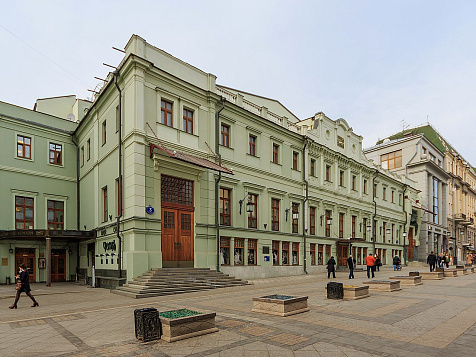22.07.2014
Новости
The Ukrainian crisis, and the subsequent souring of Russia’s relationship with the West, has affected bilateral space cooperation. The first visible wave of sanctions hit the sector on April 2, when NASA’s Associate Administrator for International and Interagency Relations Michael O’Brien sent an internal memo to employees saying that the agency was suspending all contacts with representatives of the Russian government, including “NASA travel to Russia and visits by Russian government representatives to NASA facilities, bilateral meetings, email, and teleconferences or videoconferences”. The U.S. Department of State on the same day announced the suspension of several projects with Russia, including in space exploration.
On closer examination, however, it became apparent that the ban did not affect the joint operation of the International Space Station (ISS), the use of the Russian instruments HEND, LEND, and DAN on U.S. interplanetary probes, or the joint work of the Russian space-based instrument RadioAstron and the U.S. Green Bank radio telescope.
At present, Russian-U.S. space cooperation is mostly focused on the ISS. The station is so designed that no single partner on the program (Russia, the U.S., Western Europe, Canada, and Japan) can operate it single-handedly. In addition, Western astronauts have been arriving and departing on board Russian Soyuz-TMA vehicles since 2011. The Americans, who have no crew ships of their own at the moment, will pay a total of $3.34 billion for Soyuz rides over a period of 10 years.
The U.S. does not want to lose access to the ISS, which was built largely with American money. All planned works at the station therefore continue to schedule. As for the Russian instruments on the U.S. probes, this is so minor an issue that NASA did not even bother with it.
There was also a hidden spate of sanctions, which started even before April. On March 27, the Department of State suspended the issuance of licenses for exports to Russia of military and dual-use commodities and services, including spacecraft. Reports emerged that the U.S. was banning the exportation of satellites to be launched on board Russian rockets. This led to uncertainty as to the future of the scheduled Astra 2G, Inmarsat 5, and Turksat 4B launches.
Yves Feltes, spokesman of the satellite operator SES, said on April 30 that the Astra 2G launch remained on schedule. Ten days later the company was cleared to bring the satellite to Russia. Inmarsat has also confirmed its intention to continue using Russian Proton launch vehicles for the insertion of its Global Express satellites. On May 15, reports came in that the Department of State had approved the delivery of Astra 2G and Inmarsat 5 F2 to Baikonur.
In a much more dramatic development, the U.S. Administration banned exports of radiation-hardened electronic components for Russian satellites. This happened long before the annexation of Crimea. Nikolay Testoedov, CEO of the Krasnoyarsk-based satellite specialist ISS Reshetnev, said in late April: “We now need to develop new satellites and platforms while bearing in mind possible restrictions on imports of components covered by ITAR (the US International Traffic in Arms Regulations). We have no doubts that we will be capable of creating ITAR-free satellites and platforms with the use of international cooperation.” Russia has launched a program to substitute imported components with domestic designs in order to solve the problem.
Passions ran highest with regard to a possible disruption to the supplies of Russian rocket engines for U.S. launch vehicles. At first, Russian officials declined to comment on this topic. It was only after rumours started to circulate that Russia might stop exporting engines to the U.S. in response to the sanctions that it was communicated that such a move would harm Washington more than Moscow.
Although the American legislation mandates that foreign critical components used in U.S. equipment have to be easily replicable on American soil, for purely financial reasons the Russian rocket engines have been built exclusively in Russia since the program started in 1996. Even if American manufacturers obtained the relevant technical documentation in its entirety, they would take five years to organize domestic production, and would have to invest at least $1-1.5 billion into the requisite tooling.
The private firm SpaceX was quick to use the situation to its own ends, demanding to cancel the results of a U.S. Air Force tender for the launching of 36 satellites in the interests of national defence. The tender had been won by United Launch Alliance (ULA), the operator of Delta IV and Atlas V launch vehicles. The Atlas rockets are powered by Russian-made RD-180 engines. In his statement at Senate hearings on March 5, SpaceX CEO Elon Musk pointed to ULA’s dependence on foreign (primarily Russian) suppliers, saying that it presented a serious hazard to national security. Despite his political rhetoric, Musk was pursuing exclusively commercial goals. He proposed the SpaceX Falcon 9 rocket as an alternative to Atlas V.
On April 28, SpaceX sued the U.S. Administration in the Court of Federal Claims, describing ULA’s USAF contract as illegitimate because it involved payments to the Russian defense industry, which allegedly contravened Executive Order 13,661. The court on April 30 granted an injunction temporarily banning purchases of RD-180 engines.
The development could result in Atlas V being withdrawn from the fleet of rockets cleared to insert military satellites. Falcon 9, on the other hand, was no real alternative because it had not been certified for launches in the interests of national defence. On May 1, U.S. Under Secretary of Defense for Acquisition, Technology and Logistics Frank Kendall announced that the Pentagon had no immediate replacement for the RD-180. The Department of State on May 6 made assurances that purchases of the Russian engines did not contravene the executive order. The court effectively dissolved the injunction on May 8.
The U.S. Department of Defense is pursuing a three-pronged policy on the RD-180. The first aspect involves stockpiling spare engines. Atlas V developer Lockheed Martin, which oversees the procurement of Russian engines, has been consistently buying more than immediately required. As a result, America now has enough spare RD-180s to last for more than two years of launches, ULA President Mike Gass told Senate in March. The relevant directive, which governs the procurement of foreign key components, was approved by the U.S. Administration back in 2000.
The second aspect involves gradual localization of RD-180 production, with the possibility of urgently launching a full production cycle domestically if required. This solution is considered to be particularly costly and labor-intensive.
The third aspects proceeds from the scenario of complete cessation of RD-180 imports. In this case the Pentagon will have to re-prioritize the scheduled missions, using Atlas V rockets for some and switching others to Delta IV. The Delta launch vehicle was developed by Boeing as part of the common Evolved Expendable Launch Vehicle (EELV) family for capability duplication purposes. The USAF regularly analyses the status of component supplies for both rocket types.
Overall, the U.S. space-related sanctions against Russia do not appear to be systemic or overly tough. Russian Deputy Prime Minister Dmitry Rogozin believes this is partly because any sanctions are “a boomerang which will always come back to hit the one who launched”. This is why the Russian space agency Roscosmos did not announce any reciprocal measures, and generally refrained from commenting on NASA’s behavior. Roscosmos Secretary of State Denis Lyskov stressed on April 8: “We are absolutely not considering nor contemplating any reciprocal measures because we see no rationale for them.”
Experts believe that further strengthening of sanctions may backfire on the West. First, the Western space industry would suffer serious financial losses by refusing to work with Russia. Second, practise demonstrates that there are ways to bypass any sanctions. In today’s global world, virtually any electronic component can be acquired – from China, for example. Finally, the sanctions would only stimulate Russia to develop its own hi-tech industry.
Читайте также









